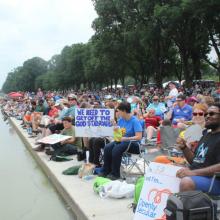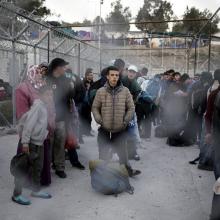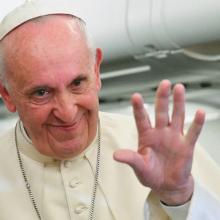Religion
Religion is increasingly viewed as highly politicized, not least due to the way that it is frequently covered in the news. Numerous studies have shown that news stories with emotional cues tend to both gain audience attention and prolong audience engagement.
It may therefore come as no surprise that online debates about religion are packed with emotional cues that evoke strong reactions from those who participate in them. This sets the stage for passionate online debates.
Since coming to power in 2012, the government has made abortion completely free as part of the National Health Service, scrapped a requirement that a woman must be “in distress” to obtain permission to abort, and dropped a weeklong “reflection period” between applying for and carrying out an abortion. It decided to act again in part because several anti-abortion sites were found to be ranked higher on search engines than the government’s own abortion information site. Although their home pages appear to be neutral, the sites and their advice hotlines — run mostly by Catholic anti-abortion activists — are on closer inspection clearly against abortion and stress the physical and psychological damage they say the procedure can cause.
When President Obama signed a newly strengthened international religious freedom act on Dec. 16, the intention was to protect religious believers around the world.
But the freshly signed act is being heralded by some legal scholars as a different milestone — for the first time, atheists and other nonreligious persons are explicitly named as a class protected by the law.
A population exchange with Turkey after World War I brought in over a million ethnic Greeks as refugees. When the new migration crisis began last year, there was empathy for the new arrivals, with many Greeks recalling what their grandparents went through.
But even given that proud history, academics and volunteers fear that the warm welcome of the last year could wear thin, when the refugees start to integrate in a nation that has long resisted a multifaith identity.
Pope Francis leaves on Monday, Oct. 31 for an overnight trip to Sweden, a historically Protestant country that today is one of the most secular in the world.
The visit is to mark the start of observances of next year’s 500th anniversary of the Reformation, which traditionally dates from Oct. 31, 1517, when Martin Luther nailed his 95 Theses to the door of a German cathedral.
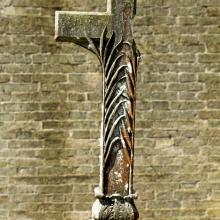
Image via TheVagabond/Shutterstock.com
Now, Donoghue, 47, has written The Wonder, a story based on “fasting girls” — a crop of pre-adolescent Victorians, some of them religiously motivated, who seemed to survive for months or years on no food and little water. Some were revealed as frauds, some gave up their fast, while others wasted away while family, friends, doctors, and clergy watched.
Amazigh was one of 125 queer Muslim activists and allies who came together for The Inner Circle’s seven-day Annual International Retreat, from Oct. 14 to Oct. 21, in South Africa. The gathering focused on “building a movement towards an all-inclusive and compassion-centered Islam,” a mammoth task for attendees like Amazigh who live in countries where homosexuality and transgender expression are often taboo and criminalized.
Scholars of Dylan — and they are legion, with many offering entire courses on the singer’s record catalog — have long highlighted the religious imagery of his work. From Old Testament references in “All Along the Watchtower” (1967) and “A Hard Rain’s A-Gonna Fall” (1976) to the New Testament basis of “Gotta Serve Somebody” (1979) and the spiritual yearning of “Thunder on the Mountain” (2006), Dylan’s lyrics and music have long reflected his own restless, seeking soul.
The members had no idea that word of their efforts to start the Islamic Center of Nashville had reached Yusuf Islam, the famous British musician and Muslim convert also known as Cat Stevens, until his check arrived in the mail.
“I was thinking, ‘What a miracle,’” said Elberry, who was a Vanderbilt University graduate student from Egypt at the time.

Image via Ozgur Coskun/Shutterstock.com
The study comes in the same year that Larycia Hawkins — Wheaton College’s first black, female professor to receive tenure — parted ways with the evangelical flagship school after she posted on Facebook that both Christians and Muslims worship the “same God.” The controversy stirred fresh debate among evangelicals about whether all religions worship the same God, and whether God accepts the worship of all religions.

Image via Yulia Grigoryeva/Shutterstock.com
Summer’s gone, and with it the breezier reading of the beach and the hammock. In its place comes a more serious reading list — more literary, less lightweight. Here are seven books where religion plays a role — though not a proselytizing or a self-help one — to read between the falling leaves.
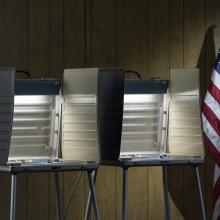
Image via Burlingham/Shutterstock.com
A quarter of U.S. adults do not affiliate with any religion, a new study shows — an all-time high in a nation where large swaths of Americans are losing faith.
But while these so-called “nones” outnumber any religious denomination, they are not voting as a bloc, and may have little collective influence on the upcoming presidential election.
The rapid growth of the religiously unaffiliated, charted in a survey released by the Public Religion Research Institute on Sept. 22, is raising eyebrows even among those who follow trends in American religiosity.

Andrey Bayda / Shutterstock
IN 2000, sophomore Onaje X.O. Woodbine was Yale basketball’s leading scorer and one of the top 10 players in the Ivy League. From the outside it must have seemed like a dream come true for a young man who grew up playing street ball in the Roxbury neighborhood of Boston.
But Woodbine felt isolated and excluded by the white players on the team, troubled by what he’s described as “a locker-room culture that encouraged misogyny,” and hungry to focus on his studies and wrestle with deeper philosophical and theological questions. So he quit basketball.
Woodbine eventually returned to the courts of his youth as a researcher, studying the practice and culture of street basketball for his doctoral studies in religion at Boston University. Woodbine is the author of Black Gods of the Asphalt: Religion, Hip-Hop, and Street Basketball (Columbia University Press) and a teacher of philosophy and religious studies at Phillips Academy in Andover, Mass. He spoke with Sojourners senior associate editor Julie Polter in May.
Julie Polter: What led you to study street basketball from a religion scholarship angle?
Onaje X.O. Woodbine: When I was 12 years old, I lost my coach. He was my father figure; I didn’t have my father for most of my early childhood. It was just devastating.
I went to the court the next day to look for him. I felt his presence in that space. It was really the only place, looking back, where I felt safe, I felt whole, where I felt like my inner life was valuable, where there was a whole community whose interest was in my growth as a human being.

Seth Ryan / Shutterstock
[Editor's note: This article is excerpted from Stars Beneath Us: Finding God in the Evolving Cosmos by Paul Wallace copyright (c) 2016 Fortress Press. Reproduced by permission of Augsburg Fortress. No further reproduction allowed without the written permission of Augsburg Fortress.]
WHAT ARE WE to do with an obsolete God?
We have options. We could, as I did for a while, put God aside. ... We can try, but I’m pretty sure that God is the question that won’t go away. Silence it here and it will pop up over there. It may show up as worship of science, or the economy, or a political cause, or ego, or an addiction, or sex, or a fellow human being—or whatever, but show up it will. Some humanists and atheists have expressed contempt for religious believers’ worship of God. They ask, Why worship anything at all? One online interlocutor once asked me, “How can you put the word ‘worship’ on your signs? Isn’t that demeaning?” I replied, “No, it is truth in advertising. We all worship something.” I am convinced that not all worship is true worship, but I am equally convinced that religious believers at least acknowledge that worship is simply what all people, religious and otherwise, do. There’s nothing for it but to accept it and make the best of it.
We could also try to build a new God out of the raw materials of science itself. It’s hard to disagree with Ralph Waldo Emerson when he writes, “Nothing is great but the inexhaustible wealth of nature. She shows us only some surfaces, but she is a million fathoms deep.” Isn’t the cosmos astounding, and isn’t the wonder it stirs in us something akin to a religious feeling? Yes and yes. Without such feelings there would be no religion at all. But are such feelings enough? Is the mind-blowing order and complexity and diversity and beauty of the cosmos sufficient to slake our religious thirst? For some it may be and I can nearly, but not quite, imagine how it could be enough for me.
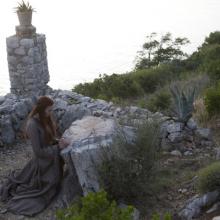
Image via Keith Bernstein/HBO/RNS
Game of Thrones, the engrossing, sometimes disturbing, always exciting TV series returns for a sixth season Sunday night on HBO. The network is not releasing screeners, so it’s anybody’s guess what’s going to happen. But one thing you can bet on — the television show, like the books by George R.R. Martin they are based on, involve storylines with religious elements. Considering where some of those stories left off, religion may come further to the fore in the new season. Here’s a primer on a few of the religions of Westeros, the imagined, medieval-inflected world of Game of Thrones.
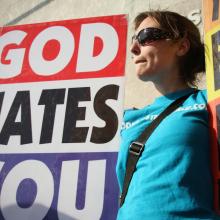
Image via SunSlice Photography/Flickr
As a wizened old veteran of the fight, I struggle with discouragement sometimes. It is not just that many Christians fail to live up to the clear demands of Christian discipleship. It’s that we can’t even agree on what those demands are. We all say we believe in Jesus, but what we make of that belief is so irreconcilably different that I am not sure that we are in any meaningful way members of the same religious community.

Image via Pew Research Center / RNS
Fewer men than women show up in U.S. churches, and women are markedly more likely to pray and to hold up religion as important. But in Muslim nations, it’s the women who are missing in action at the mosque — and yet they’re on par with men in upholding almost all the Muslim pillars of faith.

Image via Thames & Hudson / RNS
It is not easy to be a respected member of the art-world intelligentsia and take religion seriously.
“Religion and modern art continue to be typecast as mortal enemies,” writes Aaron Rosen.

Image via Linda K. Wertheimer/RNS
Opponents of lessons on Islam often claim that Christianity takes a back seat in public schools’ religious instruction. That’s what an Augusta County, Va., mother argued recently when she opposed a teacher’s use of the Muslim statement of belief in a calligraphy exercise. She held a forum at a local church to protest how her religion wasn’t allowed in schools, but Islam was.

Tree lighting ceremony in Bethlehem. Image via REUTERS / Ammar Awad / RNS
The Star of Bethlehem is the name given to an event in the night sky that the Gospel of Matthew says heralded the birth of Jesus. Three wisemen — or magi, or kings — come to King Herod and ask, “Where is the one who has been born king of the Jews? We saw his star in the east and have come to worship him.”


